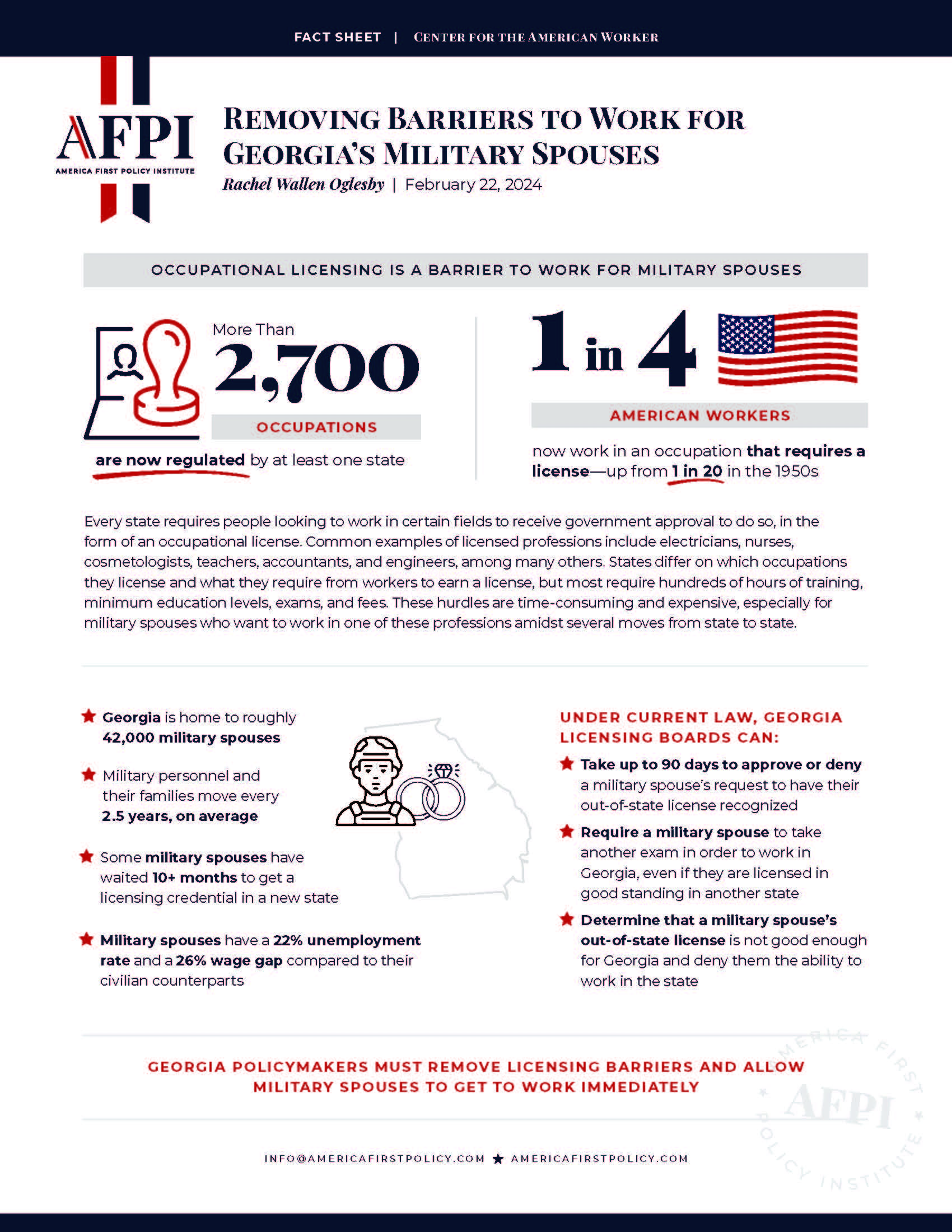Removing Barriers to Work for Georgia’s Military Spouses
OCCUPATIONAL LICENSING IS A BARRIER TO WORK FOR MILITARY SPOUSES
More than 2,700 occupations are now regulated by at least one state.
1 in 4 American Workers now in an occupation that requires a license - up from 1 in 20 in the 1950s.
Every state requires people looking to work in certain fields to receive government approval to do so, in the form of an occupational license. Common examples of licensed professions include electricians, nurses, cosmetologists, teachers, accountants, and engineers, among many others. States differ on which occupations they license and what they require from workers to earn a license, but most require hundreds of hours of training, minimum education levels, exams, and fees. These hurdles are time-consuming and expensive, especially for military spouses who want to work in one of these professions amidst several moves from state to state.
- Georgia is home to roughly 42,000 military spouses
- Military personnel and their families move every 2.5 years, on average
- Some military spouses have waited 10+ months to get a licensing credential in a new state
- Military spouses have a 22% unemployment rate and a 26% wage gap compared to their civilian counterparts
UNDER CURRENT LAW, GEORGIA LICENSING BOARDS CAN:
- Take up to 90 days to approve or deny a military spouse’s request to have their out-of-state license recognized
- Require a military spouse to take another exam in order to work in
- Georgia, even if they are licensed in good standing in another state
- Determine that a military spouse’s out-of-state license is not good enough for Georgia and deny them the ability to work in the state
GEORGIA POLICYMAKERS MUST REMOVE LICENSING BARRIERS AND ALLOW MILITARY SPOUSES TO GET TO WORK IMMEDIATELY
